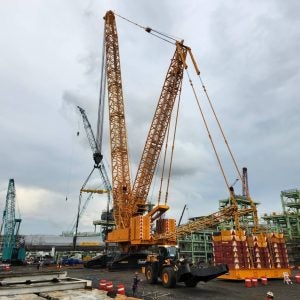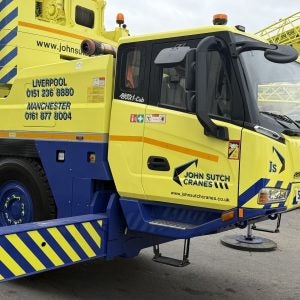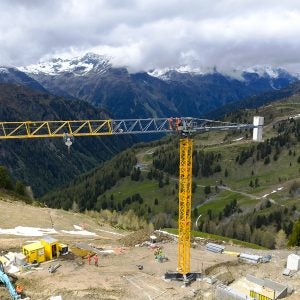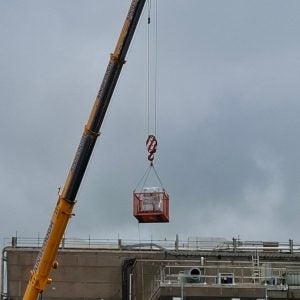In its third quarter results, Cargotec saw orders received down from EUR967m to EUR437m year-on-year, and sales down from EUR848m to EUR559m.
In this announcement, the company differentiates between operating profit, which excludes restructuring costs, and operating results, which include the costs. The company booked no restructuring costs in 2008.
In the third quarter, operating profit fell from EUR49.6m to EUR11.6m. Operating result, including EUR14.9m of restructuring costs, fell from EUR49.6m to a loss of EUR3.3m.
In the nine months to September, orders received were down from EUR3.1bn to EUR1.4bn, its order book value was down from EUR3bn to EUR2.4bn, and sales were down from EUR2.5bn to EUR1.9bn. Operating profit was EUR 29.6m compared to EUR156.9m. Operating results, including EUR36.7m, fell from EUR156.9m to a loss of EUR7.1m. Net income was down from EUR111.9m to a loss of EUR5.9m.
In its three main business areas, Hiab, Kalmar and MacGregor, the results followed the same downward trend.
Hiab
Hiab’s operating environment remained weak due to the decline in construction volumes and sales of truck cranes. Customers are postponing investments as fleets remain under-utilised, coupled with seasonal low demand in the third quarter.
Hiab’s orders received in the third quarter totalled EUR114m, down from EUR194m a year ago, and EUR382m for the nine months, compared to EUR661m. Its order book as of 30 September was worth EUR127m, down 23% on the value at the end of 2008. Sales were EUR124m, down from EUR209m, in the third quarter, and down from EUR691m to EUR416m over the nine months.
Kalmar
Kalmar’s operating environment was affected by a clear decline in the number of containers handled in ports, Cargotec said, and planned investment projects failing to materialise into orders.
Kalmar’s orders received in the third quarter totalled EUR164m, down from EUR365m, while orders for the year-to-date fell from EUR1.2bn to EUR576m. Its order book at the end of September was EUR459m, down 35% from EUR704m as of 31 December, 2008. Sales were down from EUR386m to EUR207m over the third quarter, and down from EUR1.1bn to EUR795m for the year.
MacGregor
MacGregor saw its operating environment contract sharply as the end of the shipping building boom and overcapacity in the market put the brakes on business.
Orders received in the third quarter fell from EUR411m to EUR158m, and from EUR1.3bn to EUR409m for January-September. Order book value was down 18%, falling from EUR2.2bn at the end of 2008 to EUR1.8bn at the end of September 2009. Sales were more favourable for MacGregor than other business areas, falling from EUR256m to EUR229m in the quarter and rising from EUR687m to EUR704m for the year so far. Cargotec said this gain was due to a strong order intake in previous years ad successful project deliveries.
One Company
Cargotec has made a number of institutional changes in recent months as it moves forward with its ‘One Company’ approach and tackles market conditions. This has include product development, such as a 30t demountable from Hiab, a Kalmar automatic stacking crane and a ultra-deepwater lifting system from MacGregor; numerous company acquisitions in Europe; and the introduction of the On the Move change programme, to support profitable growth in the future and streamline customer focus and efficiency. Employee numbers have fallen by almost 1,600 as of 30 September compared to a year earlier.
The ‘On the Move’ programme has included the introduction of two new business areas, Marine and Industrial and Terminal, and the global merger of Hiab and Kalmar operations. It has also brought about the introduction of a new branding strategy and visual look to improve visibility of the company and its brands.
“We have initiated significant structural changes and restructuring measures in order to improve efficiency and competitiveness,” said Cargotec president and CEO Mikael Mäkinen.
“I am very satisfied with the commitment of our organisation to the change, although we have had to make tough decisions to adjust our cost structure. The cost savings are already beginning to improve our profitability. The current weak demand for cargo handling equipment is something we cannot impact, but with the restructuring, we are stringer than ever when the market recovers.”






